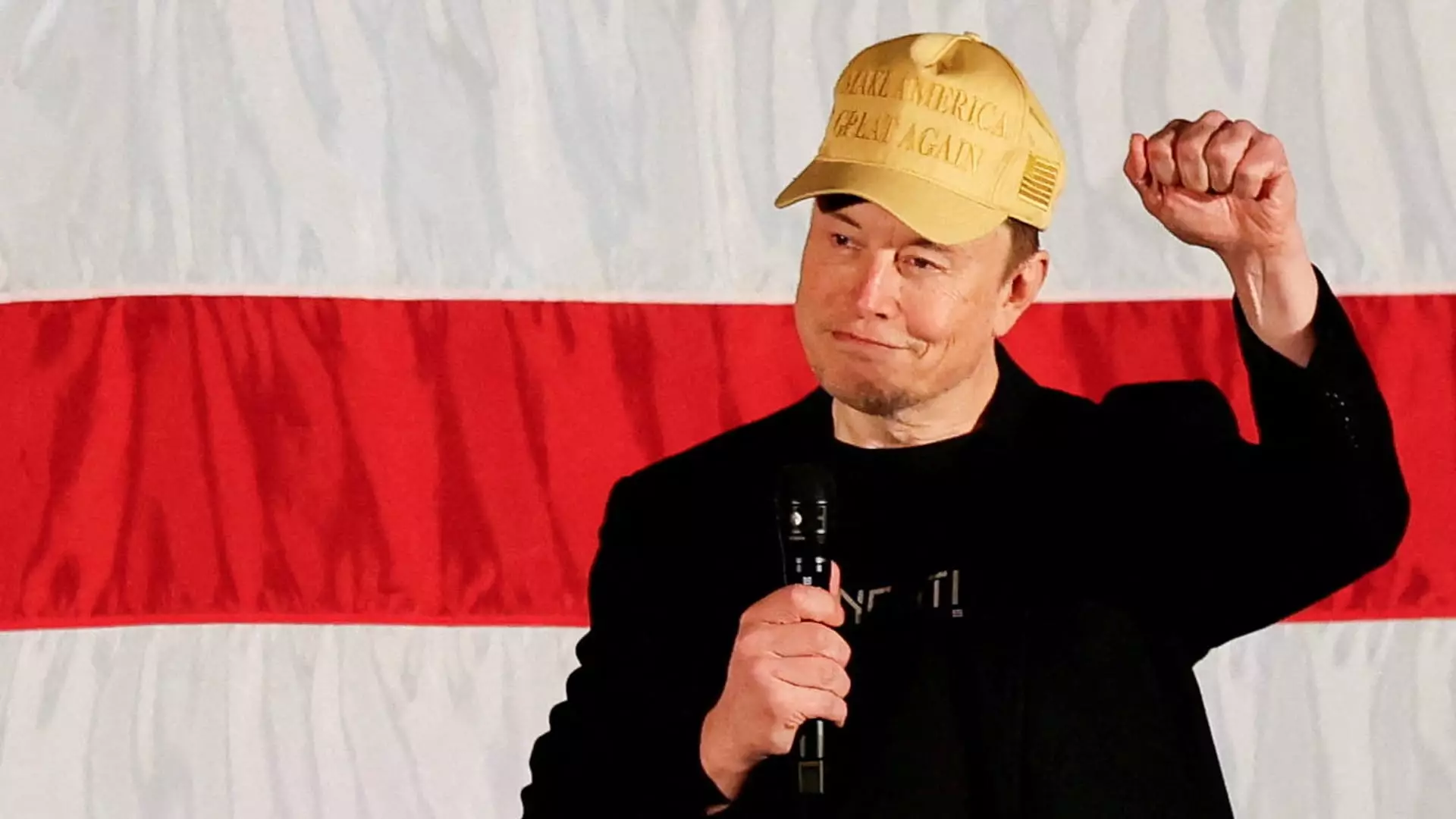Elon Musk has once again sparked debate, this time by proposing a unique initiative to incentivize voter registration among swing state voters. His announcement of randomly awarding $1 million daily to registered voters who sign a petition for his pro-Trump political action committee raises critical legal and ethical questions about the intersection of wealth, influence, and democracy in the United States.
During a recent event held by America PAC in Harrisburg, Pennsylvania, Musk excitedly told attendees about his grand plan. With the stakes high in a presidential election cycle he described as pivotal, Musk recognized Pennsylvania as the “linchpin” of the contest. The billionaire entrepreneur is leveraging his significant wealth—estimated at nearly $250 billion—not merely to promote a political agenda but to actively mobilize and incentivize voters towards one specific candidate: former President Donald Trump.
Musk’s strategy seems aimed at courting voters in key states such as Arizona, Georgia, and Wisconsin, among others, by using his charisma and fame to draw attention. However, the legality and morality of such tactics are contentious. Election law experts, including Rick Hasen of UCLA, have quickly pointed out that Musk’s proposal potentially violates federal laws prohibiting the buying of votes. This raises vital discussions about the integrity of the electoral process, especially in an era where the influence of money in politics is already a significant concern.
Musk’s offer of cash prizes for signing a petition introduces a problematic precedent in American politics. Critics argue that this approach essentially commodifies the act of voting, undermining the foundational democratic principle that elections should not be influenced by financial gain. This tactic not only risks distorting voter incentives but also raises serious ethical questions regarding the extent to which wealthy individuals can leverage their resources to sway public opinion and electoral outcomes.
Involving a notorious figure like Musk—whose track record boasts both innovation and controversy—intensifies the scrutiny. His previous comments, which straddle the line between provocative and alarmist, have already attracted disapproval, especially among public officials. Pennsylvania’s Democratic Governor Josh Shapiro has labeled Musk’s initiative as “deeply concerning,” prompting calls for law enforcement investigation into the legality of Musk’s strategy.
Musk’s venture into politics is not unfamiliar territory. His earlier remarks have often been deemed incendiary, frequently venturing into dangerous rhetoric. His comments regarding fellow politicians like Vice President Kamala Harris, which hint at violence albeit humorously, have raised alarm. The mixture of audacious claims about voter fraud and calls for deregulation adds layers to Musk’s complicated political identity.
While Musk’s grasp on innovative technology and business acumen is undeniable, his cavalier approach to political discourse seems incongruous with the responsibilities associated with his level of influence. An individual of his stature advocating taxpayer-funded regulatory cuts while simultaneously benefiting from government contracts exemplifies the contradictions prevalent in his public live.
Musk’s philanthropic gestures and bold public statements present a façade of engagement with social issues, but they also expose uncomfortable truths about modern politics. The interplay between immense wealth and political influence highlights a growing concern in American democracy: can democracy survive the overpowering weight of money?
Discussions surrounding campaign finance reform have gained prominent traction, yet challenges remain. Musk’s actions underscore the urgent need for comprehensive regulations aimed at ensuring that democracy remains representative rather than oligarchic. A society where prominent billionaires wield extraordinary power through cash incentives, such as Musk’s daily $1 million giveaway, raises alarms that democracy may be local in theory but is rapidly unattainable in practice.
Elon Musk’s attempt to mobilize voters through financial incentives encapsulates the ongoing tension between wealth and politics in the United States. While his intentions—to engage voters in a critical electoral period—might seem admirable on one hand, the implications of such tactics reflect deeper issues related to election integrity and the democratic process. As the legalities of his promises are scrutinized, Musk’s controversial initiative serves as a crucial reminder of the complexities and challenges inherent in fostering a truly democratic environment in today’s political climate.


Leave a Reply